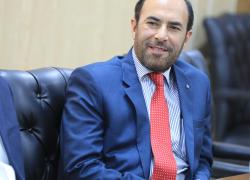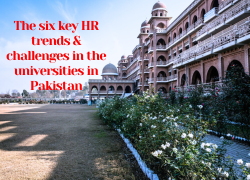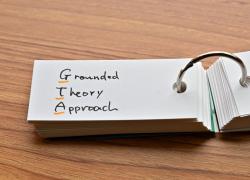How to prepare mentally and emotionally for a job interview?
Based upon my personal and professional life practical experiences, this article is aimed at providing useful insight, valuable guidance and help for the candidates in order to assist them prepare best for the job interview. This write-up provides a brief account of the misadventures on the part of the candidates, I observed during the course of my professional career so that prospective candidates may be able to learn from the same.
As pointed out in my previous article, “Preparation for a job interview: Is it really a tough job?”, some of the most frequently asked questions, I claim to be ‘common questions’, oftentimes asked during the interviews and I emphasized upon the candidates to prepare very carefully and painstakingly so as to make it a success story. Here, I will provide some useful tips for the candidates, how to respond to each of these questions while taking due cognizance of the following valuable suggestions.
Please introduce yourself!
The first, question, the candidates usually have to respond is to introduce themselves. In fact, this is not a license to tell about one’s life story but to use this as an opportunity to give a concise and concrete summary of the candidate’s career, abilities and goals. The candidate should concentrate on telling about work-related skills as opposed to home life affairs. The panel is supposed to be not interested in the family issues. What the panel would actually be interested in, whether the candidate is the best fit for the job or not and the candidate has to set the stage. Hence, the candidate should prepare his answer accordingly. The answer should be polite. Not long and not short.
During the course, I had a horrible experience, as a great deal of candidates could not start their interview with a befitting reply to this simple and straightforward first question and hence, they messed up the entire interview. Sometimes they could not pick-up the theme of the foremost question and in spite of asking the interviewer to repeat it, they pop out responding which is not an appropriate way of beginning with, resulting in mere panic havocking the whole of the interview.
At times, the candidates have multiple, diverse and disperse ideas in mind but they do not know what to speak and what to avoid. It makes a lot of sense if the candidates have a clear idea of what they are supposed to articulate. It is advisable that they put their probable and plausible responses in black and white while preparing for the interview, repeat it several times and refine it with the assistance of a colleague, peer or a friend. It is not needed that the candidates should recapitulate the same stuff what they have prepared but with this homework, they would be able to speak effortlessly and comfortably without a hitch.
Why are you interested in this job position/organization?
It is critically important that the candidates should have undertaken sufficient research about the organization they aspire to join and the position in question and prepare themselves accordingly. They need to have a copy of the person specification for the job (if available) and focus on impressing upon the panel their skills and attributes match the position. They also need to take a look at the vision, mission, aim, objectives and strategic direction of the organizations. This the area the candidates take it very lightly and casually.
Why are you quitting the current/existing job?
At this point of time, the candidates should avoid speaking ill about their previous employer, but rather focus on the positive sides of their career progression, career aspiration, thrust for growth and neck for learning from new and challenging job environment. This is a grave mistake commonly made and should be avoided at all cost; whatever may be the situation. Even, in case the candidate is hopelessly stuck at this point, he/she should not take refuge in blaming someone else for that matter. There is no grace in disgracing your previous boss.
Why should we select you?
Here, the candidates should clearly explicate how their educational qualification, knowledge, experience and skills match the job requirement, how it makes him or her a strong candidate for the position and how it will give him or her a comparative advantage over others. This is the key question, and the candidates should prepare the answer very carefully and consciously.
What improvement will you bring to the organization?
This is one of the most areas very few candidates genuinely prepare themselves for. Most of them, inherently feel that once they were selected and join the organization, they would mechanically learn about the organization and at this stage, the interviewer must understand this point and avoid asking similar questions. I feel this is a common misperception. The candidates must undertake a bit of research about the organization as well as the job position. This will help them answer such questions pleasantly and effectively and help them stood out from less-prepared candidates.
What are your major strengths and key weakness?
While answering this question, the candidates should avoid character snags or personality flaws rather focus on the areas that could be improved upon over time. Here, the reply should be more focused on professional life rather than personal or family life.
What are your hobbies?
It is better to have something in mind, how to address this question and be prepared for the follow-up questions. Logically, it is not binding upon the candidates to answer each and every question. If the candidate does not have a genuine neck for a spare-time activity, it does not need to invent one. It can be disastrous.
In one of the memorable interviews, I was attending as a subject expert; one interviewer asked a candidate about his interests and hobbies, whose interview, otherwise, till that point, was perfectly a smooth sailing. In response, the candidate in a very sober and impressive tone revealed that he enjoys reading books as a pass-time and in fact, he may be rightly called as a bookworm. Everyone in the panel got ardently keen and interested. As a follow-up question when another interviewer asked him to name the book, he read recently. The candidate was absolutely at loss to figure out. In fact, he was just cooking up. This culminated in a total catastrophic end of one of the best interview, I ever experienced.
In the next article, “An interesting account of the most common interview mistakes”, I have shared a brief account of the most common interview mistakes made by the candidates with useful suggestions on how to avoid it.


















